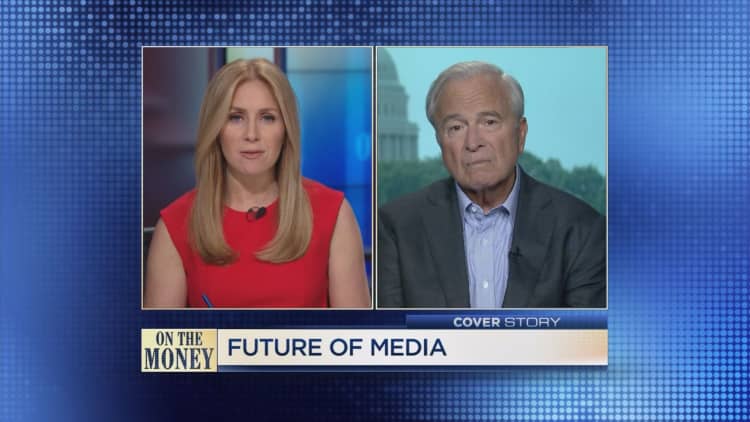
As Samantha Bee and Roseanne Barr learned, with the combined speed of cellphones, social media and television, a controversy can explode into a scandal in record time.
Quiet often, the results are not what people expect – which can mean bad news, especially if you're a celebrity with a big platform.
"People are trying to say 'wow' things," Ken Auletta, media columnist at The New Yorker, told CNBC's "On the Money" in an interview.
"In the desperation to attract an audience, be it with tweeting, or quick thoughts off the top of your head to draw a little attention, it just encourages this kind of behavior," he added.
Backlash was swift after Roseanne Barr sent a racist tweet about former Obama advisor Valerie Jarrett. It led to the abrupt cancellation of her self-titled, top rated ABC sitcom.
Separately, Samantha Bee used a vulgar insult to describe Ivanka Trump last week. Yet her TBS show, "Full Frontal," was not cancelled.
Auletta explained that he saw differences in the two comediennes' controversies.
"Roseanne has a history of saying racist things and basically it wasn't a one-time runoff. But I think in the case of Roseanne, it was just a repetition of previous things she's done," he told CNBC. "Samantha Bee arguably was one time she did it. Both are wrong and both tried to apologize."
However, prior to Bee's apology on her show Wednesday night, advertisers State Farm and Autotrader announced they would no longer advertise on "Full Frontal."
Auletta added that "it's a given (advertisers) want their products advertised in a friendly environment." If brands place their products in "a controversial environment, it's a legitimate concern."
Ads and data
In Auletta's new book, "Frenemies, The Epic Disruption of the Ad Business (and Everything Else)," the author explained how the public is staging a rebellion against traditional advertising.
"The reason I called the book "Frenemies" is increasingly the networks and the newspapers and the magazines are ad agencies, bypassing the agency themselves and going directly to the client. But the biggest frenemy is the public," he said.
"The public doesn't like your ads. And they're rebelling against it," Auletta added. He pointed to ad blockers on phones and how "more than half the people" who record television programs skip the ads.
To counter that, Auletta explained, advertisers are using targeted ads based on your personal data.
"We know so much about you, we'll give you information that may help you, discounts, whatever and then you say, 'Hey, wait a second, how do you know so much about me?' So the privacy issue gets into play," he said.
While the European Union has new privacy laws forbidding companies from "collect [ing] your data or cookies unless you choose as a consumer to opt-in. In the U.S., you can only opt- out. You don't have that same choice," Auletta added.
"Will we get to a point when the federal government says you Facebook, you Google, you Amazon, you cannot get access to those cookies unless people choose to opt-in and allow you that that access," Auletta asked. "And that changes the whole advertising game, because that data is so valuable."
He added that "one of the reasons why Facebook and Google are so popular with advertisers is they have that data, but if they're going to be denied that data or it's going to shrink, that changes the ad game for them."
On the Money airs on CNBC Saturday at 5:30 am ET, or check listings for air times in local markets.



